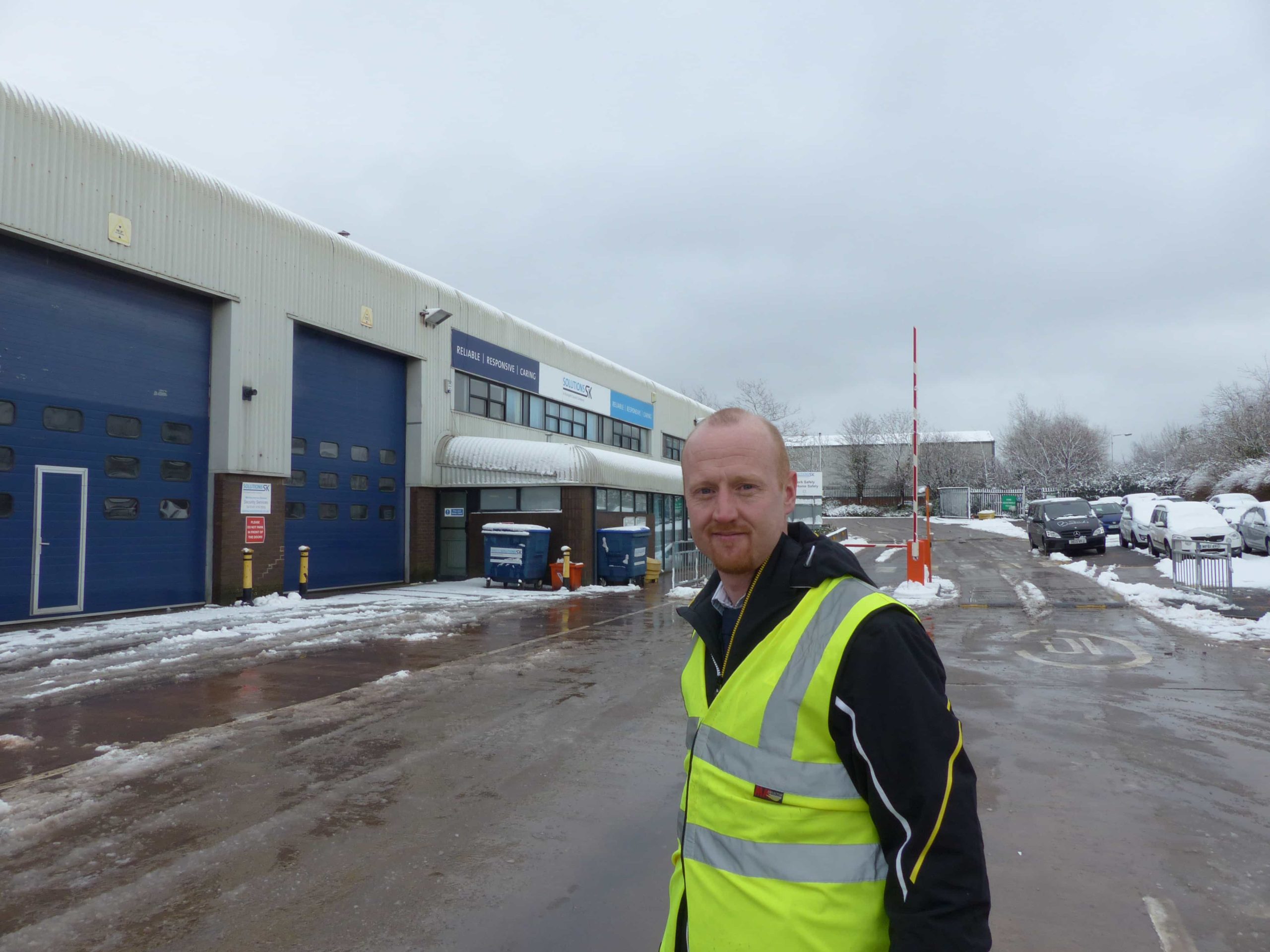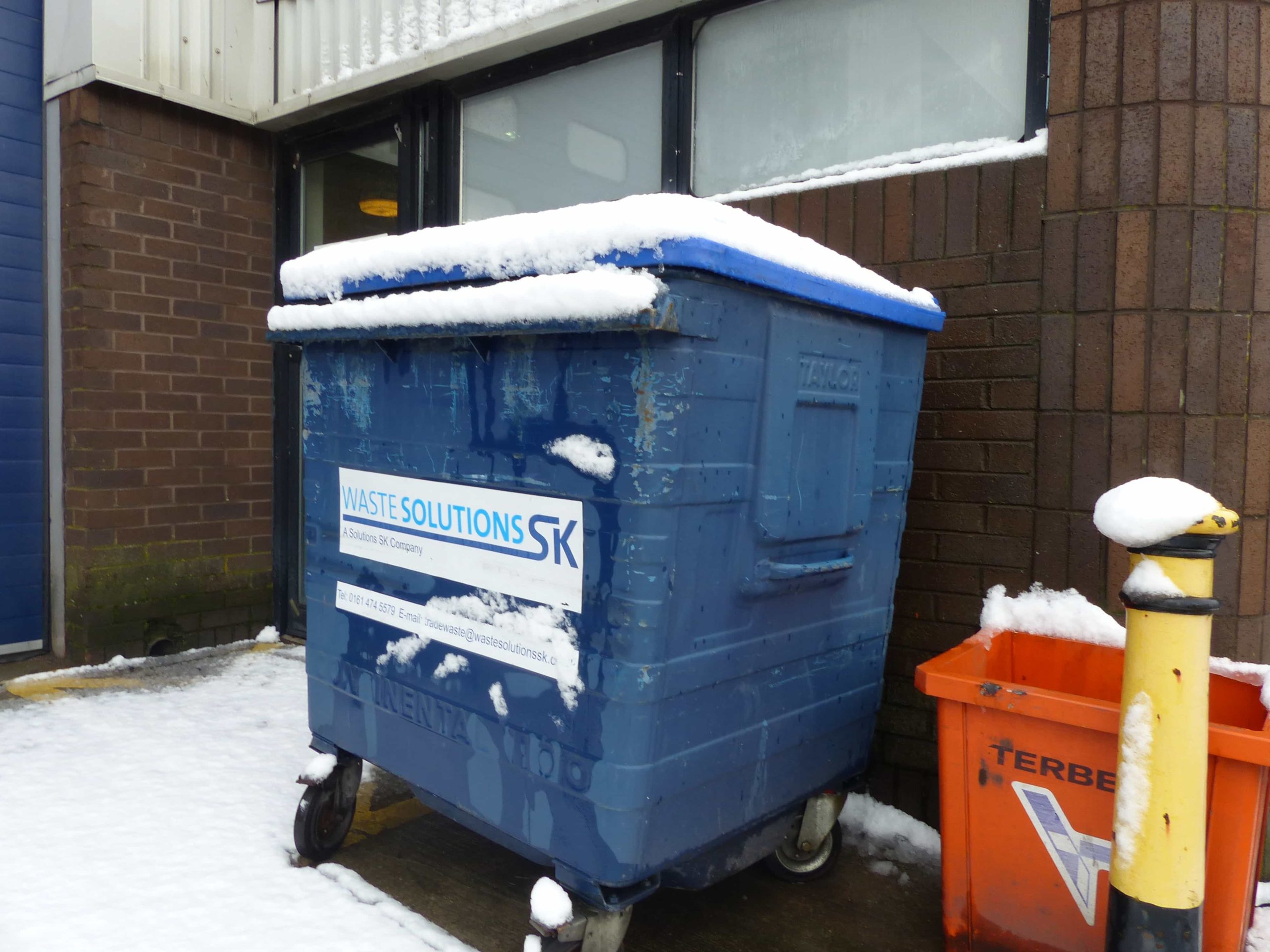As a rule of thumb, Stockport is not known for its adverse weather conditions. So it was a strange sight when this reporter arrived in the Greater Manchester town last week (January 29) to find the region covered in a white blanket of snow.
The short-lived winter whiteout also came as a surprise to Adam Forbes who, in his capacity as parking patrols and waste manager for Stockport metropolitan borough council, has rarely encountered snow as an obstacle to the bin collections rota.
Yet by 11am, the decision had been made to suspend all waste and recycling collections in the area – with crews informed they should return to Solutions SK’s depot on Oakhurst Drive. Home to Stockport’s 39-strong fleet of refuse collection vehicles, the headquarters seemed eerily quiet as the last of the trucks crawled into the car park.
In order to compensate for the disruption, Mr Forbes explained that green waste collections would be cancelled next week so that crews could re-collect any recycling and refuse that had been missed.
Collections may be on ice today, but the suspension is a minor blip on Stockport’s impressive track record when it comes to waste. Since the start of the decade, the council has rolled out a series of initiatives to optimise recycling among its residents. Today, it stands as the top-performing urban authority in England – achieving a combined recycling, composting and reuse rate of 61.11% in 2013/14 and saving £2.7 million on disposal costs over the last year.

What is the council’s secret? The introduction of a four-bin system in 2009 is said to have worked wonders for the borough. The system includes: a blue wheelie bin or bag for paper and card; a brown wheelie bin or black box for glass, tins and plastic bottles; a smaller 140-litre black bin for residual waste, and; a green wheelie bin (or food waste caddy for flats) for mixed organic waste.
“That’s when our recycling rate skyrocketed,” says Mr Forbes. “We reduced the residual capacity and encouraged residents to recycle. The ‘right thing right bin’ communication campaign created awareness so when bins were collected crews identified the key problem areas.
Incentive
“We are very much of the carrot approach. We haven’t made any prosecutions but contacting the repeat offenders who put the wrong material in the recycling bins has encouraged residents to change their behaviour.”
Crews have also benefited from in-cab technology which determines whether there are mitigating circumstances for incidences of contamination, such as missed collections in the area.
Once collected, recyclables are sent to Viridor’s 90,000 tonnes-per-year materials recycling facility (MRF) in Longley Lane in Bredbury, under a £3.8 billion contract signed between consortium Viridor-Laing and the Greater Manchester Waste Disposal Authority (GMWDA) in 2009. The residual waste fraction is sent to Viridor’s energy-from-waste plant in Runcorn – which generates around 51MW of electricity to power a neighbouring chlorine and PVC manufacturing site.

Likewise, food and green waste is treated at Viridor’s in-vessel composting sites. Stockport is also England’s top urban composter and third overall in the country – composting 35.49% of its organic waste in 2013/14. The decision to send its dual stream organic waste for IVC treatment is in contrast to its closest competitor Three Rivers borough council – which last year separated its green waste and food waste in a bid to reduce gate fee costs for the material.
The high composting rate is a sign of Stockport’s “polarised” demographic – with large numbers of suburban houses and council flats existing within close proximity of each other. Mr Forbes believes the potential for increased recycling in flats and tenements is an area that remains to be explored.
Rates
Mr Forbes is reticent to expand on the council’s plans to boost rates in 2015/16, but hints that measures – such as the council’s focus on individual recycling behaviour – will be taken to further increase the rates later in the year.
He confirms the council will not imitate neighbouring Bury council, which became the first local authority in England to adopt three-weekly collections of residual waste last year. He explains: “Bury hasn’t got that smaller bin so they have to look at other ways of reducing residual waste tonnages. Our bin are only four years old so there is no pressure to replace them.”
In addition, Stockport has carried out an assessment and has no plans to change is recycling collection services to coincide with the new Waste (England and Wales) Regulations, which dictate that councils must provide separate collections of materials where ‘technically, economically and environmentally practicable’. “Our assessment looked at each waste stream and determined it complied,” he adds. “There was the potential to recycle plastic bottles separately but this was found not to be cost effective.”

The waste manager is also keenly aware of the “barrier” councils face once they breach the 60% recycling mark. Asked whether this is a result of cuts to local government funding – which stifles councils’ ability to be creative in finding ways to improve its recycling rates – Mr Forbes believes it is one in a number of contributing factors.
“Waste and recycling has saved several millions of pounds for Stockport residents,” he says. “The council has to save £39 million over the next couple of years so if I can come up with an idea to achieve it then it’s going to appeal. We are conducting some research this summer and it’s going to focus on individual recycling behaviour because that is what we want to understand.”
New heights
Ultimately though, can the council – and the UK as a whole – aspire to the heady heights of 70% recycling proposed in the now-defunct circular economy package? Mr Forbes is optimistic. “We do not have the technology to recycle mixed plastics so whether there’s a change in legislation to get that out of the waste stream or whether we invest more readily in the process that will be one way towards achieving those tricky percentages.”
For now though, the focus is the snow – and with another flurry of bad weather forecast, Mr Forbes excuses himself. After all, it’s his job to ensure that recycling rates – and the collection crews – don’t slip.










Subscribe for free